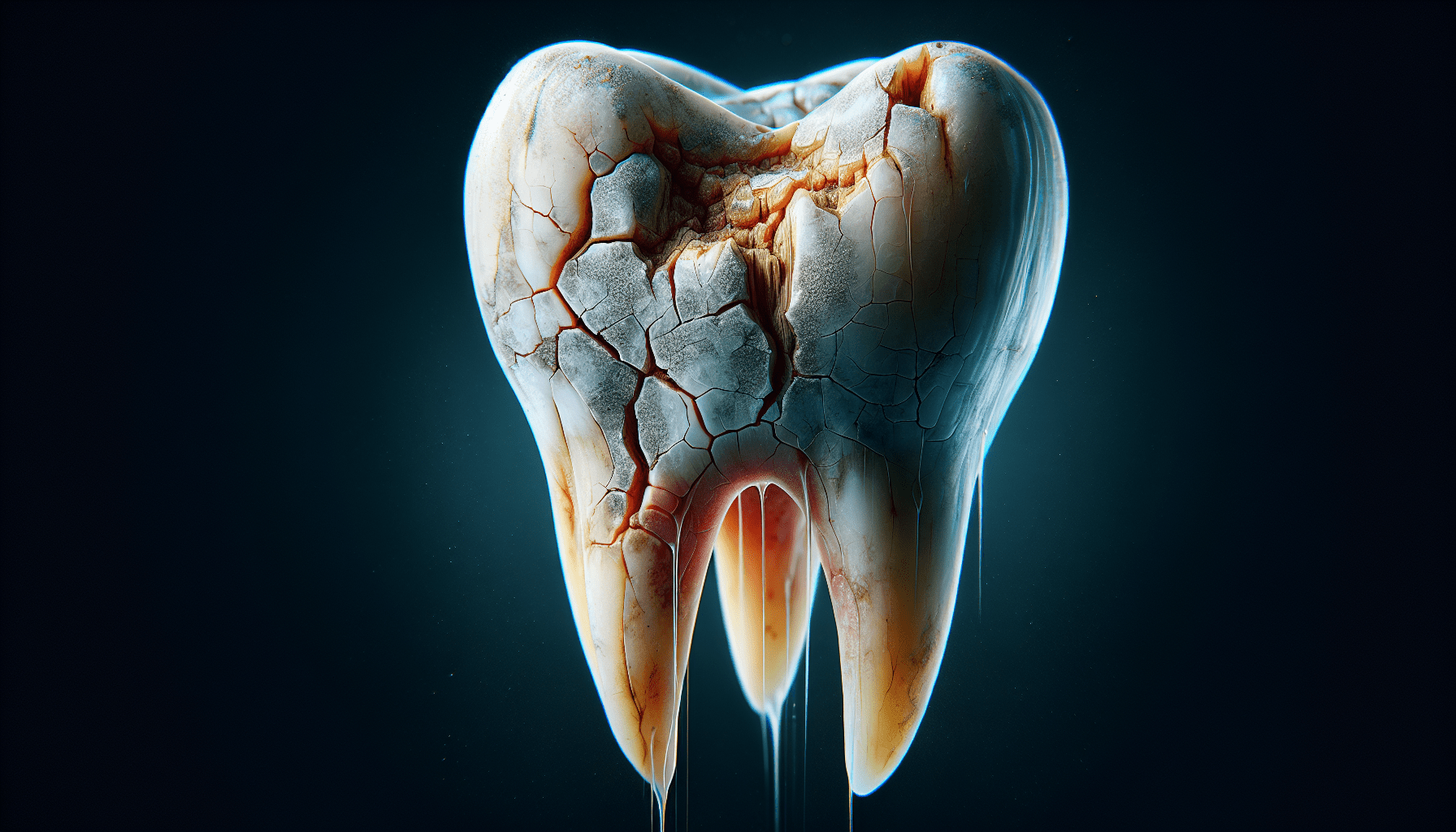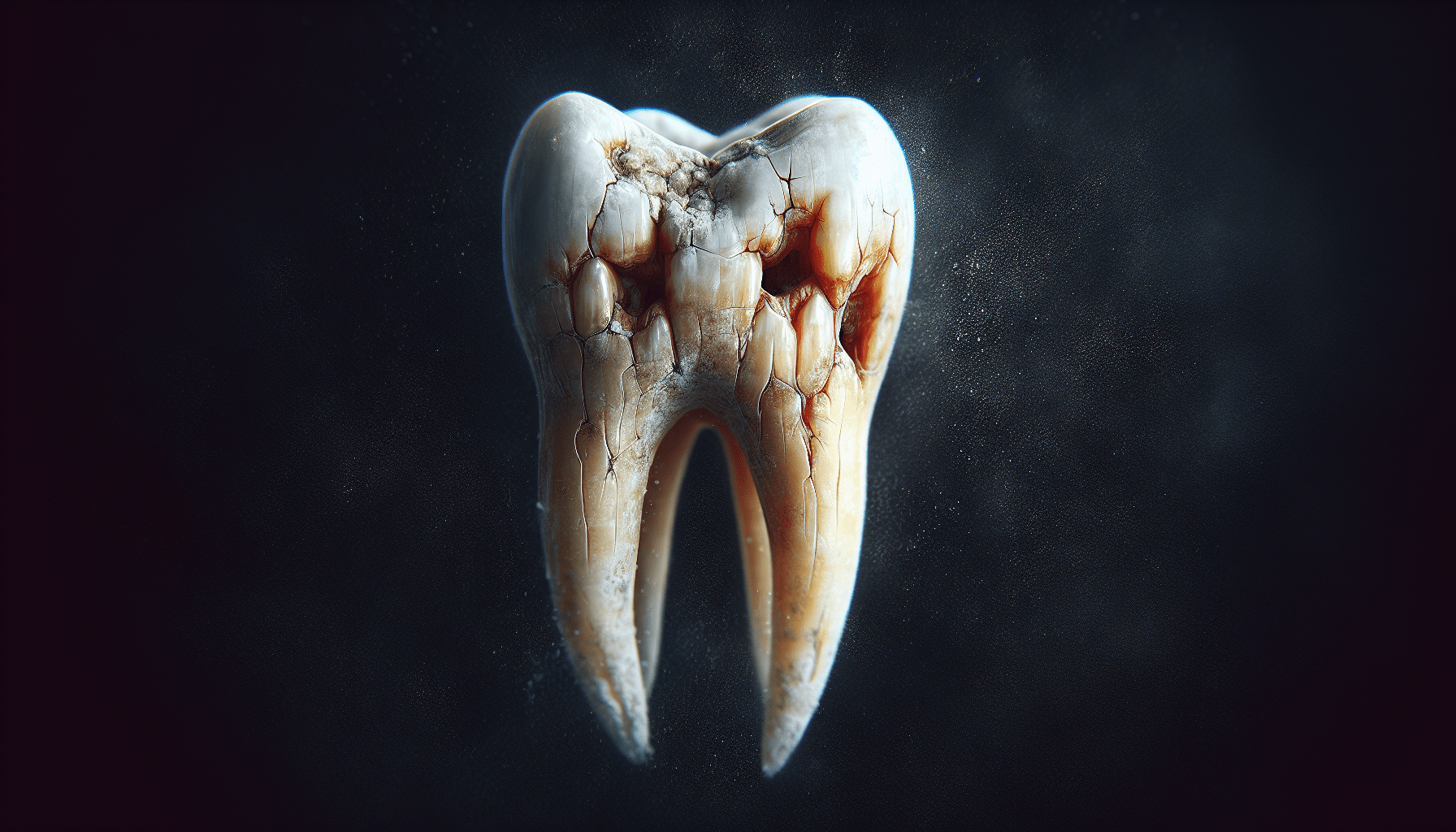What Does Poor Dental Health Mean?
Welcome! “What Does Poor Dental Health Mean?” dives into the significant impact that neglecting your dental hygiene can have on your overall well-being. You’ll discover how issues like cavities, gum disease, and bad breath aren’t just limited to your mouth—they can indicate more serious health problems lurking beneath the surface. This insightful guide will help you understand why maintaining good dental health is crucial for a healthier, happier you.
Have you ever wondered what poor dental health means and how it could affect your overall well-being? You’re not alone. Dental health is often overlooked until a problem arises, causing pain or discomfort. However, understanding and maintaining good dental health is vital for more than just a bright smile. It plays a crucial role in your general health and quality of life.
What is Dental Health?
Dental health refers to the state of the teeth, gums, and mouth. When these components are in good condition, your dental health is considered to be good. It’s not just about having white teeth; it’s about having healthy gums, jawbones, and being free from oral diseases and pain. Dental health can be seen as an extension of overall health, and neglecting it can lead to various complications.
Components of Good Dental Health
Good dental health encompasses multiple factors:
- Healthy Teeth: Free from cavities, decay, and damage.
- Healthy Gums: Pink and firm, not swollen or bleeding.
- Fresh Breath: Absence of bad breath, which could signal dental issues.
- No Pain: Your mouth and teeth should not cause you discomfort.
Maintaining these components involves regular dental check-ups, proper brushing and flossing, a balanced diet, and avoiding harmful habits like smoking or excessive sugar intake.
Signs of Poor Dental Health
Identifying poor dental health can often be a straightforward affair if you know what to look for. The following signs are indicative of deteriorating dental health.
Common Symptoms
Some common symptoms of poor dental health include:
- Toothache: Persistent pain that could point to decay or infection.
- Bleeding Gums: Often a sign of gum disease.
- Bad Breath: Chronic bad breath can be a red flag for dental issues.
- Stained Teeth: Indicative of enamel erosion or excessive consumption of staining substances.
- Loose Teeth: A sign of advanced gum disease or bone loss.
Severe Symptoms
In more severe cases, the symptoms might include:
- Abscesses: Pus-filled swellings in the gums or mouth.
- Difficulty Chewing or Swallowing: Could be due to severe decay or oral cancer.
- Extreme Sensitivity: Pain when consuming hot, cold, or sweet foods.
- Facial Swelling: Often a sign of an abscess or severe infection.

Causes of Poor Dental Health
Let’s delve into some common causes of poor dental health to understand why it’s so crucial to maintain good oral hygiene.
Poor Oral Hygiene
The most common culprit for poor dental health is inadequate oral hygiene. Failing to brush and floss regularly allows plaque to build up and harden into tartar, leading to cavities and gum disease.
Diet
A diet high in sugar and acidic foods can contribute to tooth decay and gum disease. Sugary foods create an environment where harmful bacteria thrive, while acidic foods can erode enamel.
Lack of Regular Dental Check-ups
Skipping regular dental check-ups can allow minor issues to develop into major problems. Dentists can catch signs of trouble before they become severe, making regular visits essential for maintaining good dental health.
Lifestyle Choices
Smoking and excessive alcohol consumption are significant contributors to poor dental health. Both habits can lead to gum disease, tooth loss, and oral cancer.
Medical Conditions
Certain medical conditions like diabetes and heart disease can exacerbate or lead to poor dental health. Medications for these conditions can also affect your oral health by reducing saliva flow or causing gum swelling.
| Cause | Effect on Dental Health |
|---|---|
| Poor Oral Hygiene | Leads to plaque buildup, cavities, gum disease |
| Diet High in Sugars/Acids | Causes tooth decay, enamel erosion |
| Lack of Dental Check-ups | Minor issues can become major problems |
| Smoking/Alcohol Consumption | Gum disease, tooth loss, oral cancer |
| Medical Conditions | May exacerbate oral health problems |
Consequences of Poor Dental Health
The effects of poor dental health extend far beyond your mouth. Let’s explore the various ways it can impact your life.
Physical Health
Poor dental health can lead to severe physical health issues:
- Heart Disease: Bacteria from gum disease can enter your bloodstream, increasing your risk of heart disease.
- Diabetes: Inflammation from gum disease can make it harder to control blood sugar levels, worsening diabetes.
- Respiratory Issues: Inhaling bacteria from infected teeth and gums can lead to respiratory problems.
- Pregnancy Complications: Pregnant women with gum disease are at higher risk of premature birth and low birth weight.
Emotional and Social Consequences
Your dental health can also affect your emotional and social well-being:
- Self-Esteem: Discolored teeth or bad breath can make you feel self-conscious.
- Social Interactions: Poor dental health can impact your social life, making you unwilling to smile or talk freely.
- Mental Health: Chronic pain and self-esteem issues stemming from poor dental health can contribute to anxiety and depression.
Financial Impact
Neglecting dental health can be costly in the long run:
- Expensive Procedures: Untreated dental issues can lead to the need for costly treatments like root canals, implants, or surgeries.
- Loss of Productivity: Dental problems can cause missed workdays, thus impacting your income.

Prevention and Maintenance
Prevention is always better than cure, and this holds especially true for dental health. Here’s how you can ensure your teeth and gums stay healthy.
Daily Oral Care
Maintaining a daily oral care routine is paramount:
- Brushing: Brush your teeth at least twice a day with fluoride toothpaste.
- Flossing: Floss daily to remove plaque and food particles between your teeth.
- Mouthwash: Use an antimicrobial mouthwash to help reduce plaque and prevent gum disease.
Regular Dental Visits
Visit your dentist at least twice a year for professional cleanings and check-ups. Regular visits can help identify potential issues early and maintain overall oral health.
Healthy Diet
Adopt a balanced diet rich in vitamins and minerals:
- Calcium: Essential for strong teeth and bones. Found in dairy products, almonds, and leafy greens.
- Vitamin D: Helps the body absorb calcium. Get it from sunlight, fatty fish, and fortified foods.
- Phosphorus: Supports calcium in building strong teeth. Found in meat, eggs, and dairy.
- Vitamin C: Essential for healthy gums. Found in citrus fruits, peppers, and strawberries.
| Nutrient | Role in Dental Health | Food Sources |
|---|---|---|
| Calcium | Strengthens teeth | Dairy, almonds, leafy greens |
| Vitamin D | Aids calcium absorption | Sunlight, fatty fish, fortified foods |
| Phosphorus | Supports strong teeth | Meat, eggs, dairy |
| Vitamin C | Healthy gums | Citrus fruits, peppers, strawberries |
Avoid Harmful Habits
Steer clear of habits that can harm your dental health:
- Smoking: Increases the risk of gum disease, tooth loss, and oral cancer.
- Excessive Alcohol Consumption: Can lead to oral health problems, including mouth cancers.
- Sugary Foods and Drinks: Limit intake to prevent tooth decay.
Treatment Options for Poor Dental Health
If you’ve identified signs of poor dental health, it’s important to seek treatment promptly. Modern dentistry offers a range of treatments to address various dental issues.
Professional Cleaning
A professional cleaning, or prophylaxis, removes plaque, tartar, and stains from your teeth. This is often the first step in treating gum disease and is essential for maintaining oral health.
Fillings and Crowns
If you have cavities or damaged teeth, fillings and crowns can restore your teeth’s integrity. Fillings are used for minor cavities, while crowns protect and restore significant damage.
Root Canal Therapy
A root canal is necessary when decay reaches the tooth’s pulp. This procedure removes the infected pulp, cleans the tooth, and fills it to prevent further infection.
Periodontal Treatments
For those suffering from gum disease, periodontal treatments are crucial. Scaling and root planing (a deep cleaning below the gum line) can treat early-stage gum disease. More severe cases may require surgery.
Dental Implants
If tooth loss occurs due to poor dental health, dental implants can replace lost teeth, restoring functionality and appearance.
Orthodontics
Braces and other orthodontic treatments can address misalignments that can affect oral health. Correcting misaligned teeth can improve your bite and make oral care easier.
| Treatment Option | Purpose |
|---|---|
| Professional Cleaning | Removes plaque, tartar, stains |
| Fillings and Crowns | Restores integrity of teeth |
| Root Canal Therapy | Treats infection in the tooth pulp |
| Periodontal Treatments | Addresses various stages of gum disease |
| Dental Implants | Replaces lost teeth |
| Orthodontics | Corrects misalignments |
The Role of Dental Health in Overall Well-being
Dental health is not just about your mouth; it has far-reaching implications for your overall well-being.
Connection to Systemic Health
Poor dental health has been linked to several systemic health issues. For instance, oral bacteria and the inflammation associated with gum disease can influence conditions like:
- Cardiovascular Health: Increased risk of heart disease.
- Diabetes: More difficult to control blood sugar levels.
- Respiratory Health: Risk of infections from inhaling oral bacteria.
Quality of Life
Good dental health can significantly enhance your quality of life:
- Nutrition: Healthy teeth allow you to enjoy a variety of foods without discomfort.
- Communication: Clear speech and confidence to communicate without embarrassment.
- Mental Well-being: Reduced stress and anxiety about appearance and pain.
Long-Term Benefits
Investing in dental health today can pay off in the long run with:
- Lower Medical Costs: Avoiding costly treatments for severe dental issues.
- Fewer Health Problems: Reduced risk of systemic diseases linked to poor dental health.
- Increased Longevity: Better overall health contributes to a longer, healthier life.
The Importance of Education
Educating yourself and others about the importance of dental health can make a significant difference.
Knowledge is Power
Understanding the connection between oral health and overall health empowers you to take proactive steps. Regularly consuming updated information from credible sources enhances this knowledge.
Teaching Children
Instilling good oral hygiene habits in children sets the foundation for a lifetime of healthy teeth and gums. Make brushing and flossing fun activities to build a positive attitude towards dental care.
Community Programs
Participating in or advocating for community dental health programs can spread awareness and provide resources to those who might not have access otherwise.
Taking the First Step
Taking the first step towards better dental health might seem overwhelming, especially if you’ve been neglecting it for a while. Here’s a simple plan to get started.
Evaluate Your Current Dental Health
Begin by assessing your current oral health status. Ask yourself:
- Do I have any of the common symptoms of poor dental health?
- When was my last dental check-up?
- Am I consistent with brushing and flossing?
Set Attainable Goals
Set achievable oral health goals, such as committing to brushing and flossing daily, scheduling a dental check-up, and reducing sugar intake.
Formulate a Plan
Create a detailed plan to improve your dental health, incorporating:
- Daily Oral Care: Brushing, flossing, and using mouthwash.
- Regular Dental Visits: Making and keeping appointments with your dentist.
- Healthy Diet: Incorporating dental-friendly foods into your meals.
- Avoiding Harmful Habits: Reducing or eliminating smoking, alcohol, and sugary foods.
Stay Motivated
Keep yourself motivated by tracking your progress and rewarding yourself for meeting milestones. Remember, small consistent steps lead to significant long-term benefits.
Conclusion
Understanding what poor dental health means is the first step in taking control of your oral hygiene. From recognizing the symptoms and causes to understanding the wide-ranging consequences, every aspect of dental health is interconnected. By taking a proactive approach and incorporating consistent dental care practices into your daily life, you can significantly improve not just your dental health, but your overall well-being. So, start today, because a healthier, happier you is just a toothbrush away!
Additional Resources
Navy Scuba Divers should have the worst dental health in the world:
They should deal with broken teeth and inflamed gums caused by the airtube mouthpiece they need to clench their teeth around. Moreover, they dive at depths of over 300 feet, where the water pressure should crack their enamel into pieces. And they do this for hours every day!
Instead, Navy Divers are famously known to dentists for having some of the strongest gums and molars they’ve ever seen… And it’s all thanks to this “navy tooth-repair hack” that has been recently leaked by one of their military doctors.
Many scientists believe now that this surprisingly simple 15-second hack could be the key to ending dental problems once and for all… As it allows anyone to rebuild and cement their teeth from the root up and bulletproof their gums with no effort whatsoever.
Find all about it here: Odd “Navy Tooth-Repair” Hack Fixes Bleeding Gums & Damaged Teeth.






